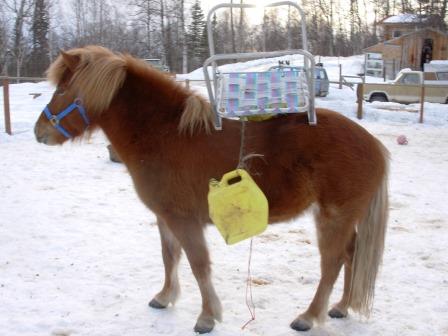
Home > Dispatches > Daily Dispatches 2014 >Daily Dispatch #342
December 23, 2014: Book Review, Part 1: Zen Mind, Zen Horse: The Science and Spirituality of Working with Horses by Allan J. Hamilton
This book’s content merits further exploration. This is what I’ve decided. The primary challenge in writing about this book involves finding a way in which I might speak positively about it. This thought coincides with my newfound belief, that I should be as positive as possible in all instances. The secondary challenge centers around my writing at length about any one section, for although the writer provides a great deal of tangentially-related information, he does elaborate on this given information. Had he (for example) gone into more depth on the subject of chi, and exactly what it is, I would have found this text to be much more useful. |
|
| In other words, to simply give the very general definition as to what chi is, that is, the life process or energy flow that sustains all living things, is simply not enough in this particular instance. This is because it does not suffice in his attempt to make the connection between energy flow and horsemanship techniques. I cringe, and will continue to cringe, in knowing that Hamilton here is making an obligatory nod to the so-called natural horsemanship people, i.e. John Lyons, Pat Parelli, Monty Roberts, Clinton Anderson, and, locally, Steve Rother. All are self-serving shysters who contend that pressure/release techniques near exclusively provide the basis for horse and human-based training interactions. They all subscribe to the dominance theory of horse training, which to me seems antithetical to humane animal treatment. There is more to interacting with horses than this. Hamilton could have advanced their ideas if he focused more on the use of chi in working with equines—but to do this he would have needed to further his definition. I am after reading this book wanting to know more about chi and how it might better enable me to interact with my horses. One example – I’d like to think that my focusing my chi in a forward direction when leading my horse might get the desired effect, which is our both moving forward in unison. I did some additional research on the elements of chi. (No surprise) one is deep belly breathing. So, in getting a horse to move on, I might inhale into my belly. Another is a supple, relaxed body. If I am supple, I will move in a light rather than a heavy footed manner. Another is alignment. If I am moving straight, the horse will do the same. If I’m thinking negative thoughts, my breath will be shallow, my shoulders and back tight, my legs heavy, and my alignment off. The horse will then find it more difficult to do as asked, which is to move forward in balance with me. What brings the above to mind is my experiences in leading Raudi to the trailhead. I never ride her there; rather, I always walk her. I usually have the dogs with me. On the way there, she often stops. I don’t know why this is, but this is what she does. In the past, I used to slap her with the crop, usually on her saddle. Lately, I’ve been experimenting, and doing the above. She’s still stopping, but my sense is that the consequence of my being more patient is that we are more in unison when we begin riding on the trail. For sure, horses take into account on any given day how relaxed we might be. Our tone of voice, the speed at which we move, and our general attitude indicate to them whether or not we can be trusted. In general, I think it’s a good idea to think hard about how we interact with horses, in hopes that we might find ways of treating them kindly and with greater respect. This afternoon I was talking with a friend, Mark Carney, who is becoming a psychic healer. He was right in saying that one should just let go of past people-related injustices, and move on. I now have a mantra; I copped it from my yoga instructor. It’s “love and kindness.” So now, when I feel like I’m emanating negative energy, I throw the switch and say “love and kindness.” I have not yet been able to do this in thinking about the wrong headed notions of the natural horsemanship guys. This, right now, is too big a step for me to take. |
|
